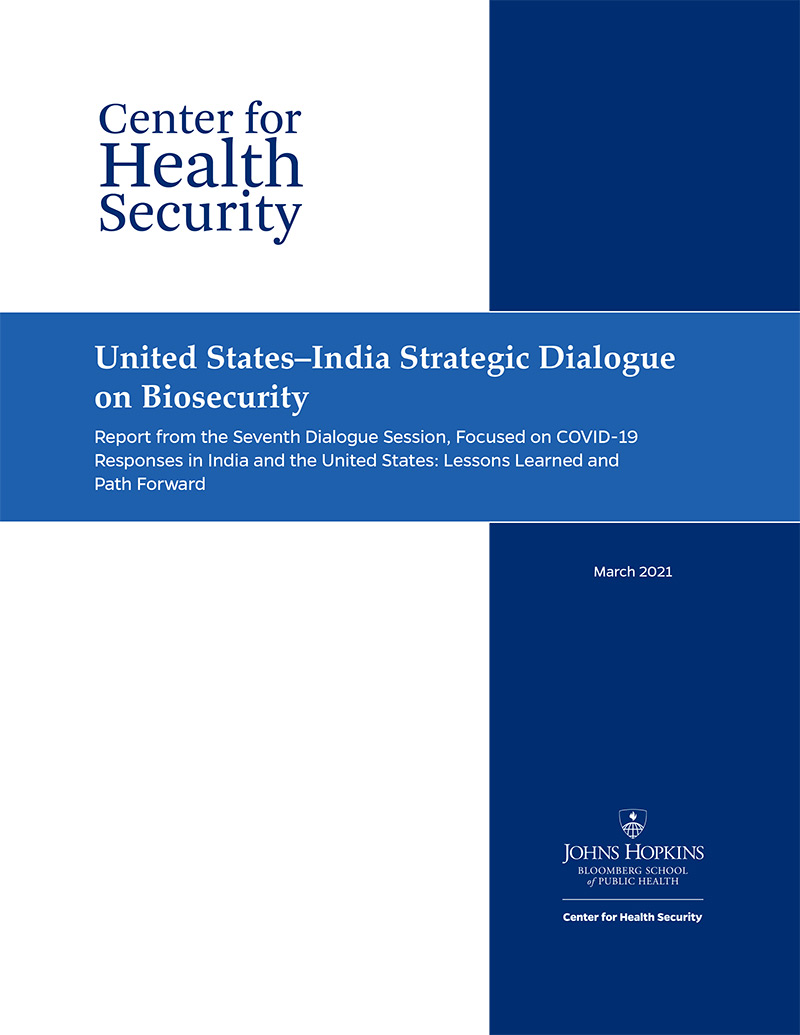Center for Health Security hosts the Seventh United States–India Strategic Dialogue on Biosecurity
Center News

March 10, 2021 – The Johns Hopkins Center for Health Security and the Regional Centre for Biotechnology of the Department of Biotechnology in the Indian Ministry of Science and Technology co-hosted the seventh United States–India Strategic Dialogue on Biosecurity on January 26 and 27, 2021. The virtual session focused on COVID-19 responses in India and the United States. The session explored lessons learned thus far and the path forward for both nations in responding to the pandemic.
The dialogue which convened senior thought leaders, scientists, public health practitioners, and medical experts from the United States and India, focused on a range of emerging issues related to COVID-19, including national response efforts, security implications of COVID-19 with respect to bioterrorism/biodefense preparedness, biosafety and biosecurity, vaccine and therapeutics development and use, diagnostic and surveillance approaches, use of nonpharmaceutical interventions, health misinformation in the context of the pandemic, and political influence in response operations and policies. Through the discussion, participants gained an increased understanding of shared challenges in the responses of both the United States and India to COVID-19, which may be addressed to increase future preparedness.
In accordance with the dialogue format, participants offered insights based on personal expertise and did not represent the government of either country in an official capacity.
Read the meeting report.
About the United States–India Strategic Dialogue on Biosecurity
This meeting is an adapted and shortened version of the United States–India Strategic Dialogue on Biosecurity. The first 6 meetings of this Dialogue occurred in Washington, DC; New Delhi; and Hyderabad over the past 3 years. The meetings are organized by the Johns Hopkins Center for Health Security, with an award from the Biological Threat Reduction Program, supported by the US Department of Defense, Defense Threat Reduction Agency.
